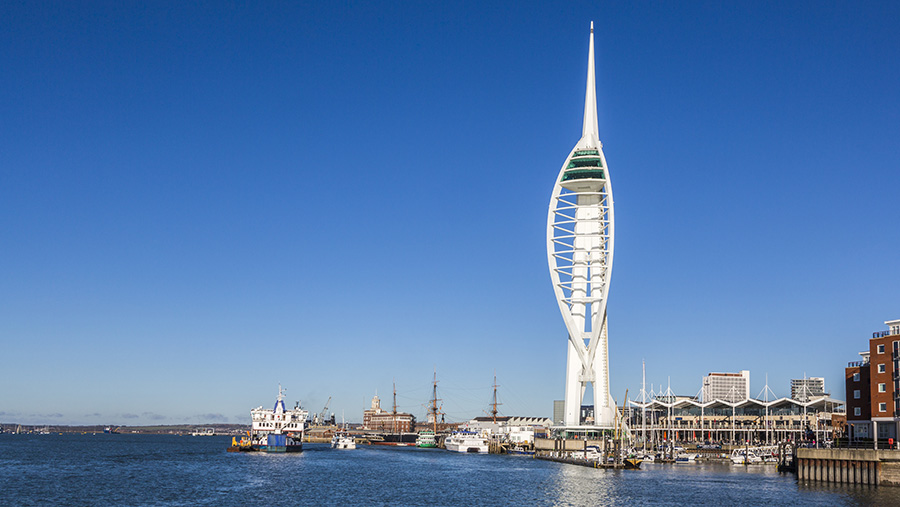Lack of border control points threatens breeding livestock trade
 © Adobe Stock
© Adobe Stock Imports of breeding livestock, worth well over £10m, could be in jeopardy following government cuts to grants for setting up a border control point (BCP) in Portsmouth, the local council has claimed.
According to leader of the council, Gerald Vernon-Jackson, Portsmouth is the only port that has so far agreed to allow the transport of live animals for breeding programmes between the UK and Europe, with plans to set up a live animal BCP.
“This will cost between £5m and £6m and Portsmouth Port made a bid into the government’s Port Infrastructure Fund last year,” he told Farmers Weekly.
See also: MPs launch inquiry into Brexit border delays
“But like all bids, the government removed all contingency allowances, and then only awarded two-thirds of the bid value.
“The city council cannot afford to find this additional money and our report recommends not building this facility.”
Infrastructure
The full report to the Council Cabinet, seen by Farmers Weekly, explains that ports must have the necessary infrastructure for checking animal health and welfare in place by July 2021, to meet the government’s border operating model.
Portsmouth had submitted an application to the Port Infrastructure Fund for two BCPs – one for live animals and one for animal products, as well as other improvements, totaling £32m. But the fund was oversubscribed and cuts applied.
Without funding support, the port – which is owned by the city council – will not continue with the live animal BCP, says the report. “It would be inequitable to pass that cost on to the local taxpayer of Portsmouth.”
The government insists that the breeding sector is not wholly dependent on Portsmouth, however.
“A number of border control posts will be designated for live animal imports, including Dover, Sevington [Eurotunnel] and Holyhead, which are the ports with the highest volumes of animal imports from the EU,” said a statement.
But NFU chief livestock adviser John Royle said the current absence of BCPs on the other side of the English Channel meant that exports of breeding animals have already been curtailed.
“And if no UK BCPs are in place from 1 July, then imports will be too,” he added.
‘Crucial’
“We believe it’s crucial this situation is rectified as soon as possible and investment in infrastructure is essential to achieve that,” said Mr Royle.
“We are in conversation with a number of ports in both the UK and EU that would be able to suitably support this important trade to try to ensure it can continue.
“The trade of high-value breeding animals is crucial for Britain’s livestock farmers.”
It is estimated that about 30,000 breeding cattle, pigs and sheep arrive in the UK from continental Europe each year, contributing to a high-status genetic pool.
